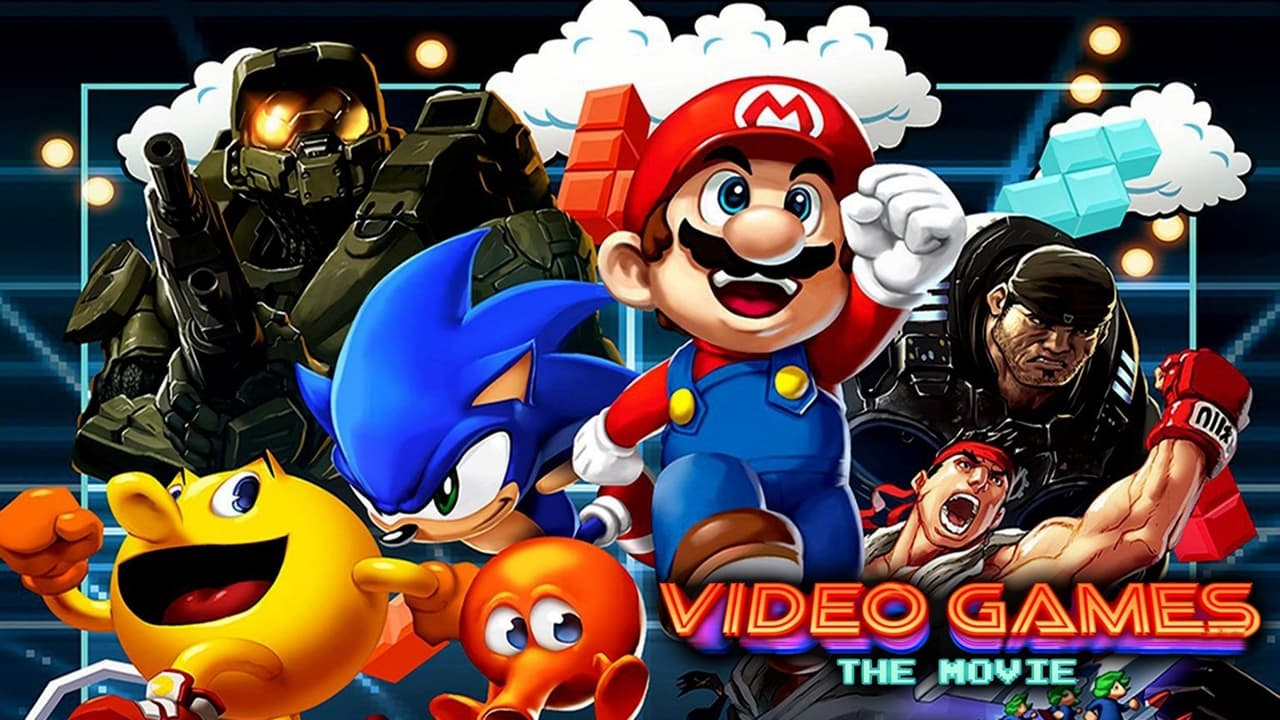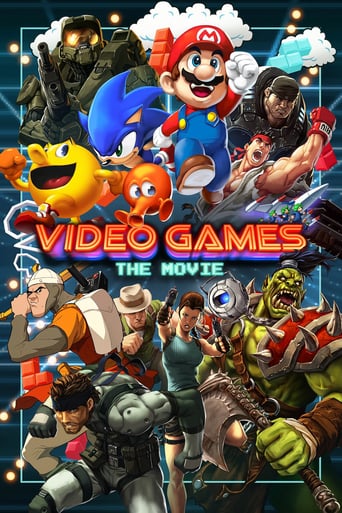

I didn't make it past the time-line at the beginning, when they omitted the Wii U from it. That, there, told me the to watch the rest would be to waste my time. 'Nuff said.But I do have to write more.The little I did watch had nothing but flash and pizazz, but seemed like a rotten apple on the inside. I feel the authors of this work have never actually played a video game, never actually watched a documentary, or even watched a YouTube video by people like the Gaming Historian or Kim Justice. Lots of MTV-style flash in the pan editing, most likely done on a MacBook Air with the default iMovie version installed.So, they funded this on Kickstarter? They need to return the money to the investors. And calling themselves "The Movie"? They missed that honor by a King's mile! There are ways to do documentaries on this subject, and still be accurate. Even offering a companion book, etc. I mean, I doubt they covered video game magazines, like Nintendo Power, GamePro, etc., that were VERY powerful during video game history.Nope. Just a bunch of ignorant PS3 players who "think" they know video games. I'll repeat my opening paragraph to close:"I didn't make it past the time-line at the beginning, when they omitted the Wii U from it. That, there, told me the to watch the rest would be to waste my time. 'Nuff said."
... View MoreThe film completely ignores the co-development of PC games. A gaping hole as far as I'm concerned as the superior capabilities of the PC allowed the development of more sophisticated games(e.g. Wolfenstein 3D, Civilization etc.). The film also does not detail the corresponding improvement in microprocessor technology which completely dictated the advancements in graphics and game speed. Otherwise the film is well put together and for the most part touches on the major milestones of game history. Personally I would have enjoyed more emphasis on the early mainframe computer game development. For instance the origins of Colossal Cave Adventure and it's subsequent genesis into the RPG games of today
... View MoreThey utilize a timeline to go through the history of gaming but quite literally skip over consoles/years that weren't Sony or Nintendo. For someone who is passionate about gaming and grew up during this timeline, it is really disheartening to know this is the documentary we as gamers are given. Once they skipped over Dreamcast I was tempted to turn it off but i trudged through it. Dreamcast was revolutionary in it's own way. The online gaming, web browser and VMU were pioneering future gaming. But that's never mentioned. Then they skipped over XBOX to go through a PS3 montage that showed Gears of War. It's incredible how poorly educated the creators of this documentary were. The entire documentary is snippets of interviews and montages. You can find better production on Youtube videos. Honestly, do yourself a favor and skip over this.
... View MoreSimply a great documentary telling the development of console games from then to now - this is not a film just for geeks and gamers - it really is a great watch in itself. Director, Jeremy Snead with brilliant editing by Kenny Price have put together a film that shines with love and care. Above all this like the best documentaries is informative and captivating - we not only have interviews with some of the best in the game world and its greatest fans - it does so without resorting to cliché or derision - it clearly is made by a team who care and love their project. That it was partially financed by Kickstarter is notable; sure there is an element of ploy in doing that, but it is a commendable one.Above all, it conveys some of the fun and wonder that gaming produces - going from Pong to Ryse and beyond it is filled with gaming clips, music, and a strong streak of both nostalgia and insight - and anyone, gamer or not, should enjoy it - it is simply an excellent documentary - well made and a very good watch.
... View More